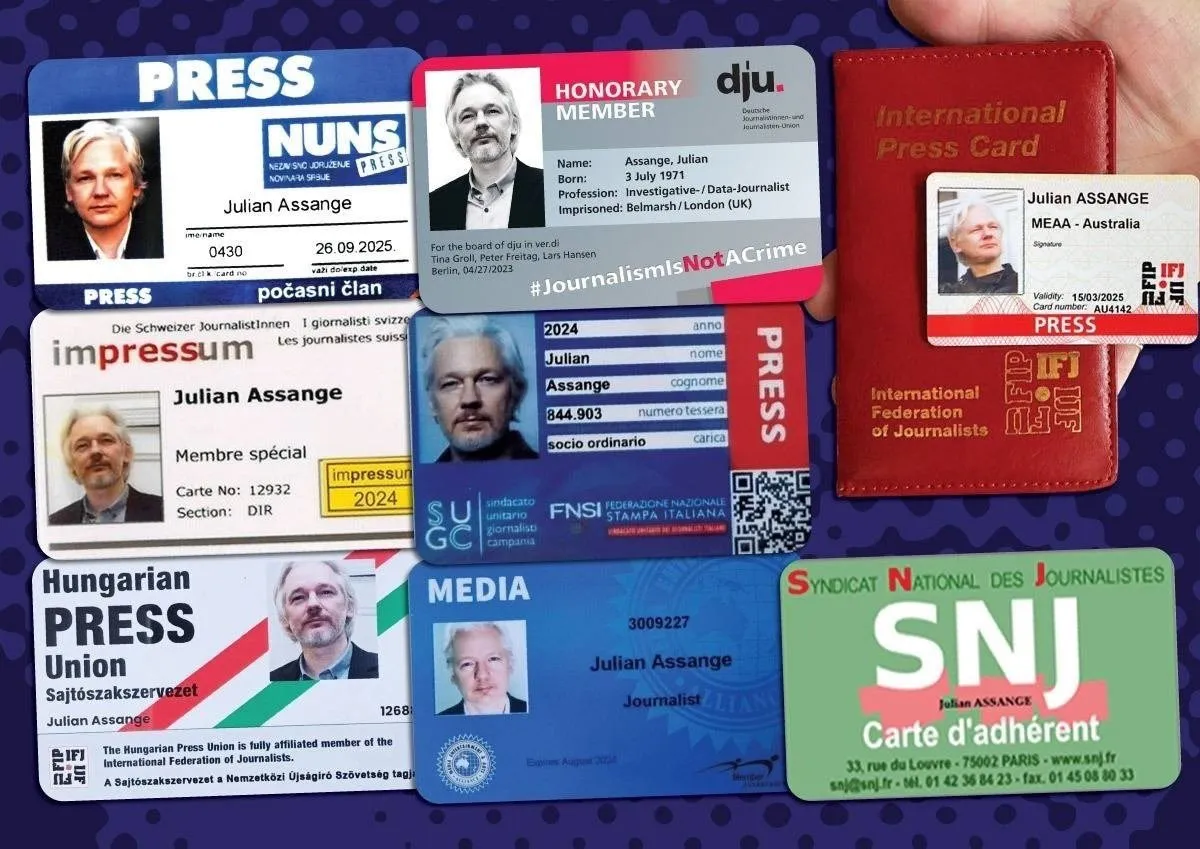by Arjun Walia, The Pulse:
 The UK High Court will decide on whether to extradite Julian Assange to the United States, the country that tried to assassinate him.
The UK High Court will decide on whether to extradite Julian Assange to the United States, the country that tried to assassinate him.
“We should have been reading condemnations of Julian Assange’s persecution—for the crime of breaking news—on the front page of the New York Times, CNN, MSNBC, FOX, The Washington Post every single day until he was released from a dungeon. It should never have come to this.”
– NSA Whistleblower Edward Snowden
This week, the UK High Court will decide on whether to extradite Julian Assange to the United States, the country that tried to assassinate him.
TRUTH LIVES on at https://sgtreport.tv/
As many of you probably know, Assange is the founder of Wikileaks, an organization that leaked millions of classified documents which exposed extremely corrupt and egregious actions of various multinational corporations, organizations and governments. These actions include war crimes, the lies that have been used to justify war, environmental terrorism, political terrorism and more.
Many of the leaks from Wikileaks included details of US activities in Iraq and Afghanistan, including attacks on innocent civilians. They also revealed details of the US treatment of prisoners in Guantánamo Bay and links to clandestine activities in the Middle East, like goals to destabilize multiple governments. These destabilization efforts were carried out with little, if any, regard for their impact on civilians who are often caught in the crossfire. Oftentimes civilians were used to ramp up death counts.
“One of the hopeful things that I’ve discovered is that nearly every war that has started in the past 50 years has been a result of media lies. The media could have stopped it, if they had searched deep enough, if they hadn’t re-printed government propaganda they could have stopped it. But what does that mean? Well that means, basically, populations don’t like wars, and populations have to be fooled into wars, populations don’t willingly go to war. So if we have a good media environment, then we will also have a peaceful environment.”
If Assange is taken from the high-security Belmarsh prison (where he is currently kept) to face a trial and a potential 175-year jail sentence in the US, there is no prospect at all for a fair trial. As his wife Stella Assange recently remarked, “he will die.”

You can find live updates of the trial here.
An Attack on Good Journalism and Free Speech
Assange was charged under the Espionage Act and the Computer Fraud and Abuse Act, largely for actions rightfully recognized as protected news-gathering practices.
In his case, the Espionage Act has been turned into a weapon to attack good journalism. It’s astonishing how the US administration is attempting to prosecute Assange, claiming that he compromised US “national security” while completely ignoring the horrendous crimes committed by the US and their allies.
The Espionage Act was intended for use against spies.
“If Julian is extradited he will be put on trial in Alexandria, Virginia, where he stands no chance of a fair trial. It is where US intelligence agencies are headquartered. The court complex is 15 miles from CIA headquarters. The state is populated by employees of the very sector whose abuses and crimes Julian exposed. The Espionage Act prevents Julian from arguing why he published what he published, what he exposed, and the fact it didn’t result in any physical harm.”
The charges laid against Assange have been met with international condemnation from various civil liberties, human rights, and journalistic communities. More than two dozen organizations including Human Rights Watch, Amnesty International, the Committee to Protect Journalists, Reporters without Borders, The National Union of Journalists and more have repeatedly urged the US Department of Justice to drop its prosecution of Assange.
This is the first time in history that the US government and its allies have brought criminal charges against a publisher for the publication of truthful information.
Australia’s parliament has just passed a motion by 86 votes to 42 calling for the release of Assange.
A December 2022 poll by Elon Musk on “X” asked, “Should Assange and Snowden be pardoned?” The answer was an overwhelming yes, with 80.5 percent of approximately 3.3 million people voting to pardon.
The collective public opinion on Assange is quite clear and has been for some time.
The UN special rapporteur on torture, Alice Jill Edwards, has even urged the government to halt the extradition, based on fears that he would be at risk of treatment amounting to torture, which Assange has already had to endure during his stint at Belmarsh.
The previous UN special rapporteur on torture, Nils Melzer, did the same. Below is a great quote from him I use in every article I wrote about Assange,
“How far have we sunk if telling the truth becomes a crime? How far have we sunk if we prosecute people that expose war crimes for exposing war crimes? How far have we sunk when we no longer prosecute our own war criminals? Because we identify more with them, than we identify with the people that actually expose these crimes. What does that tell about us and about our governments? In a democracy, the power does not belong to the government, but to the people. But the people have to claim it. Secrecy disempowers the people because it prevents them from exercising democratic control, which is precisely why governments want secrecy.”
We Don’t Live in a Democracy
Never before has it been more clear that public opinion and consensus have no impact whatsoever on big decisions. As we move forward, efforts to stifle public opinion continue to go stronger. Those who speak out and against government “fact” or opinion can be ridiculed, punished and/or labeled as conspiracy theorists or a threat to national security. Businesses can be demonetized and practically shut down, especially independent media organizations.



